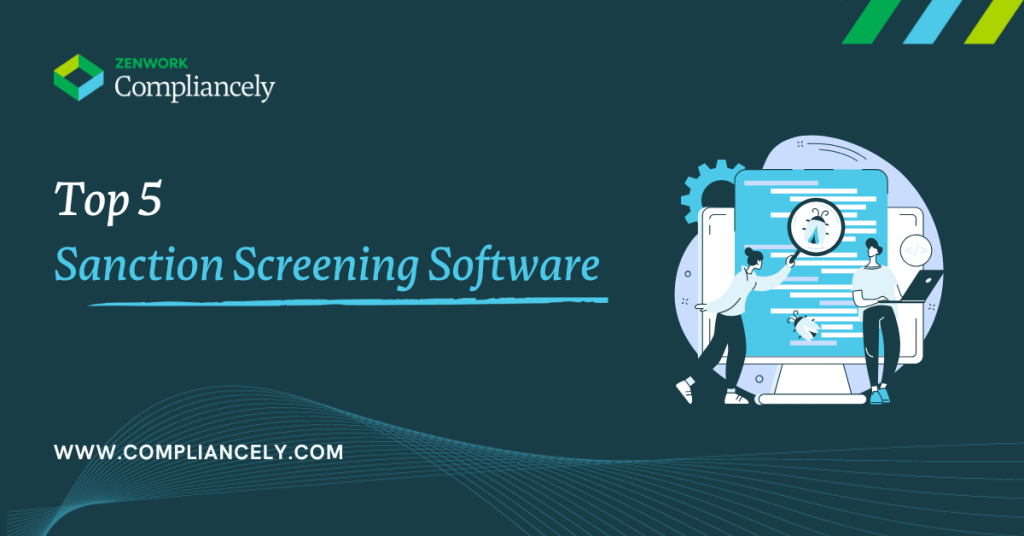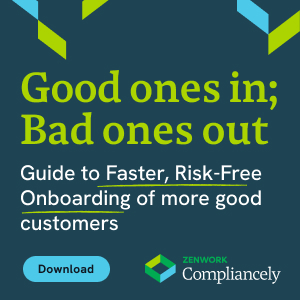Top 5 Sanction Screening Software for 2026: Top Platforms for Safer Transactions

Modern sanction screening software has become a core part of operational control that helps organizations screen customers, vendors, and payments while maintaining clear documentation for audits and examinations.
As global sanctions lists expand and change with more frequency, it’s increasingly clear that manual checks and disconnected systems are no longer sustainable. What third-party administrators require is timely screening results with reduced false positives. Smooth integration of screening into onboarding, payment, and compliance processes is also needed to maximize the effectiveness of the tool.
The best solution for these needs in 2026 should balance accuracy and speed while supporting audit readiness throughout the payment lifecycle.
When Sanctions Change Faster Than Your Controls
Payers rely on sanctions screening software to automatically screen individuals and organizations against global sanctions and watchlists, including databases of politically exposed persons (PEPs).
So, instead of manual searches or spreadsheets, teams can use configurable matching logic, ongoing monitoring, and clear recordkeeping to support consistent decisions.
With a lack of automation, there can be missed matches and poor documentation, among other things, and these issues can surface during audits, regulatory reviews, or internal testing.
The strongest providers operate as a real-time sanctions list screening platform that continuously updates sources and pushes results into onboarding and payment workflows.
Best Sanctions Screening Software Tools For 2026
1. Compliancely
Compliancely is an API-first platform for identity, tax, and sanctions compliance and is used by insurers and other payers who prefer sanctions screening to work together with identity and tax verification rather than being managed separately.
The solution combines KYB, KYC, and sanctions screening software to support sanctions and watchlist screening (including PEP), business verification, and tax ID validation in an integrated workflow.
With Compliancely, customers, vendors, contractors, and partners can be validated against relevant international sanctions and watchlists during onboarding. The platform can automatically re-screen entities when underlying sanctions and watchlists are updated, and its ongoing monitoring features help reduce the need for manual review to support up-to-date screening and audit readiness.
Compliancely supports both a no-code web portal and scalable APIs, making it suitable for organizations with high onboarding volumes or frequent payments.
Pros
- Combines sanctions, business verification, identity checks, and tax validation into one platform
- It is designed for payers managing vendors, contractors, customers, and partners
- Offers ongoing monitoring to minimize the risk of outdated screening decisions
- Has centralized audit logs that improve visibility during reviews
Cons
- Requires upfront integration planning to fully leverage the platform
- The software may seem to be too heavy for very small or low-risk payer programs
2. Refinitiv World-Check
Refinitiv World-Check provides sanctions, PEP, and related risk data and supports screening through its tools, including World-Check One. Organizations can use World-Check directly or integrate it into their own screening systems and case workflows, depending on how they operate.
Its main strength is broad global coverage and wide adoption across regulated industries, especially for organizations that work across multiple countries.
Pros
- Extensive global coverage across sanctions and PEP lists
- Widely used by financial institutions and other regulated organizations
Cons
- Implementation and tuning can be resource-intensive
- Tax identity checks and many downstream compliance processes bank on separate systems
3. Dow Jones Risk & Compliance
Beyond sanctions and watchlists, Dow Jones Risk & Compliance includes journalist-built profiles and adverse media coverage. Teams using this software can screen across customers, vendors, and third parties, and use it for investigations and escalations when a match needs added context.
While it offers great detail, for payers focused on routine, high-volume transaction checks, it can be more capability (and process) than the day-to-day workload requires—unless high-risk counterparties or complex escalations are common.
Pros
- Detailed contextual profiles help make informed risk decisions
- Useful for high-risk industries and complex investigations
Cons
- Workflows can feel heavy for routine screening needs
- Primarily a risk-data source, so full KYB, KYC, and tax-ID verification require additional platforms
4. LexisNexis Bridger Insight XG
Bridger Insight XG, which is usually used by regulated institutions that prioritize formal review processes and detailed documentation, presents structured sanctions screening along with negative news monitoring and case management, and is often evaluated alongside other AML and sanctions screening tools for banks.
The platform provides strong audit trails and escalation workflows, helping teams demonstrate compliance during examinations. However, integrating it into modern digital onboarding and payment systems may require additional engineering effort.
Pros
- Robust documentation and audit capabilities
- The tool is a good fit for complex AML and compliance programs
Cons
- Deployment and maintenance can be demanding for smaller teams
- Tax ID and business verification typically sit outside the platform
5. ComplyAdvantage
ComplyAdvantage is focused on API-driven screening and monitoring and positions itself as a sanctions screening API for fintechs and fast-growing digital payment platforms. Sanctions, PEP, and adverse media screening with ongoing monitoring are some of its offerings.
The platform also gives flexibility and speed, which can be useful for modern tech stacks. However, payers would need additional tools to handle tax identity validation and formal business verification.
Pros
- Developer-friendly APIs for real-time screening
- The tool suits transaction-driven environments
Cons
- Tax identity and filing workflows are handled separately
- Alert tuning and review can still challenge smaller compliance teams
Selecting Sanctions Screening Software That Protects Every Transaction
Payers should first determine where sanctions screening must occur within their workflow (e.g., onboarding new customers, processing payments, ongoing monitoring). Factors like expected volumes, response-time requirements, and acceptable false-positive rates can greatly influence which platform is selected.
Integration strategy is important to consider as well. Too many disparate tools can increase both operational overhead and audit risk. That’s why using a unified platform makes more sense—it can reduce duplicate work and improve visibility across teams.
Last but not least, opting for platforms that support automated OFAC and EU sanctions checks alongside verified business and tax data can help keep records clean throughout the year, as inconsistent data can lead to incorrect 1099s.
Bottom Line
As sanctions lists often change without a fixed schedule, manual screening processes can find it hard to keep up, especially when there is a need for consistent decisions and audit-ready proof. That’s why a unified workflow that connects sanctions screening with KYB/KYC and tax ID validation can help payers reduce rework and keep records clean end-to-end.
Book a Compliancely demo to see how sanctions screening, KYB/KYC, and tax ID checks can run together in one streamlined, audit-ready workflow.

